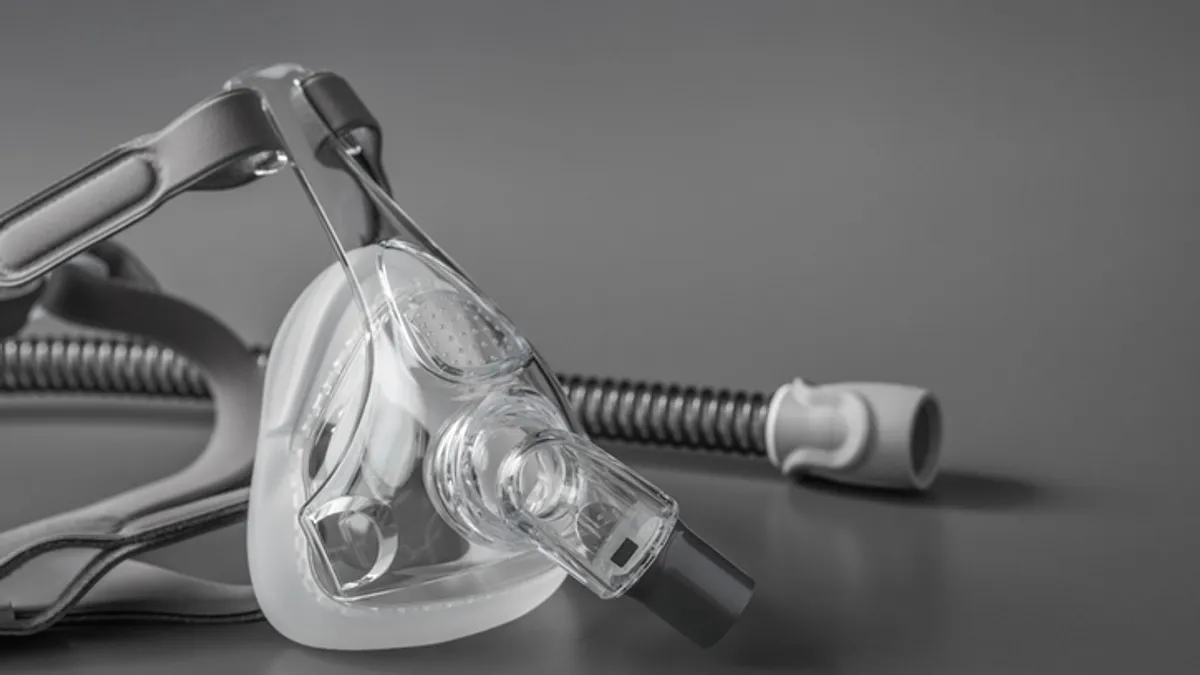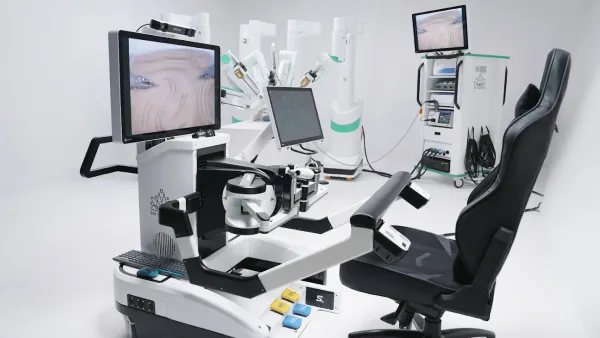Q1 Insights: ResMed continued to benefit from the sleep-apnea respirator recall at rival Philips in its fiscal first quarter. The rollout of the AirSense 10 Card-to-Cloud device, which lacks wireless capabilities and thereby bypasses a supply chain bottleneck, drove growth in its first full quarter on the market.
Demand for the Card-to-Cloud device varied by region. In the U.S., Canada and Latin America, the new device helped ResMed grow sales by 23%, the company reported. Still, device sales fell 10% in Europe and Asia. The decline stemmed in part from a preference for the supply-constrained ResMed device with wireless connectivity.
“Customers in countries such as France and Japan and beyond prefer to work with the limited product flow of our 100% cloud connectable devices rather than change their workflows for Card-to-Cloud models,” ResMed CEO Mick Farrell said on a conference call Thursday with investors.
Racing Philips: ResMed said it is taking “a high double-digit percentage” of the opportunity created by Philips’ recall, but how much share the company can win will depend on the speed it increases production and how long Philips is off the market, the executive said. ResMed is running a range of scenarios, including models in which its rival is off the market until July or even later in 2023.
“They say they may be back in January, but I'm not optimistic that they'll actually be back given all the issues that are there for them,” Farrell said. “They say they're maybe 3 million into 5 million. I'm skeptical of that. I think they're talking about production numbers versus delivered numbers.”
In a conference call this week discussing his company’s third-quarter earnings, Philips CEO Roy Jakobs said the recall had yet to be resolved. Some 5.5 million CPAP, BiPAP and other ventilators were recalled and Philips has been unable to ramp up production and source enough new parts to repair or replace the defective machines.
Last week, Jakobs apologized in a blog post for the company’s botched recall. Although Philips was aware for years of problems with the respirators, it only began a recall in 2021 after the CEO said the company’s senior management became aware of the severity of the issue.
ResMed CEO Farrell added he expects a “steady increase” in device production each quarter this fiscal year and beyond. COO Rob Douglas said on the earnings call that the supply chain is now more predictable and noted thee has been a “big reduction in the rate of decommits” even as ResMed continues to compete with automakers for chips.
Shares of ResMed fell 7.5% to $214.99 in pre-market trading.









